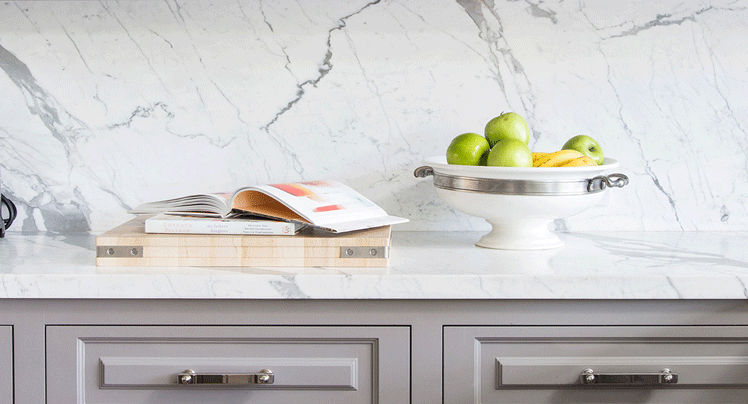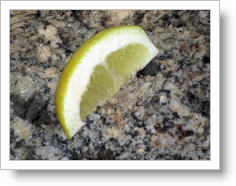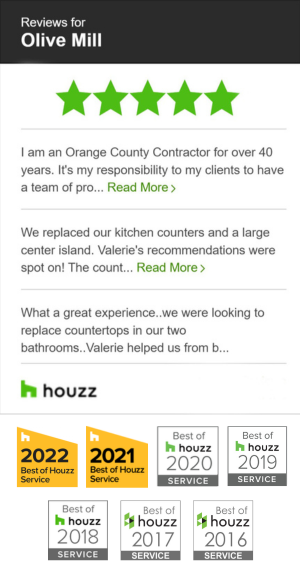Marble Countertops

Statuary Bianco Marble
Full Height Splash
Marble Countertop Near Me
Marble countertop material is an all-natural stone product, mined from the earth. Typically offered in white with streaks of color, every slab is unique. Most marble comes with a highly polished finish, although some marble comes with a honed surface.
Options – Choose from many options that make your countertop truly custom:
- Finish– Polish or Honed
- Edge Profiles
- Splash – Set-on or Tile
- Sink Type – Top Mount, Undermount and Farmhouse
Stain Resistance – Marble countertops must be sealed with a quality natural stone sealer that is non-toxic for food service applications. If you re-seal you counter on a regular basis, the surface should stay relatively protected. The most important thing to know is that you cannot use chemical cleaners to clean the stone. Chemical cleaners such as Windex, 409 and Simple Green will strip the sealer away, leaving your surface unprotected.
Heat Resistance – Marble is virtually heat proof. The reason we say “almost” heat proof is that in some instances, extreme temperature change can cause a crack of fissure to split apart. Other than that, most cookware will not get hot enough to damage marble. Because of this, we always recommend a hot pad or trivet.
Cutting, Etching and Abrasion – Marble is softer than granite and will tend to scratch much easier. More importantly, marble will etch. Acid in foods reacts with the calcium carbonate and literally eats away a little bit of the surface leaving it rough. Most daily use will not scratch the surface. Keep in mind, if using the surface as a cutting board it will show scratches from the knife. For this reason, we always suggest using a cutting board.
Impact – Although marble can withstand impact, if a hard impact does occur, edges can chip.
Food Safe – If you properly seal your marble countertop and clean after each use, you should have an exceptionally clean and sanitary counter surface. Marble is not NSF approved for use in commercial food preparation areas.
Test your marble before you make your selection. Not all marble is the same. Use the test below to determine the suitability of your marble slab selection.
Marble Suitability Tests
 Lemon Test – The lemon test is to determine the ability of your marble to resist etching. Follow the steps below:
Lemon Test – The lemon test is to determine the ability of your marble to resist etching. Follow the steps below:
- Place a wedge of lemon or lime, cut side down, on the sample overnight.
- Wipe the sample in the morning and hold it at an angle to the light.
- Check for a rough spot where the lemon was placed.
- Etching will appear dull and rough.
Etches normally occur where calcium or calcite is present in the make-up of the marble. If your sample reacts to the lemon wedge, it is something to consider before selecting marble for your kitchen countertop.
Water Absorption Test – Test the suitability of your marble to resist water absorption. The tighter the grain the less absorption.
Follow these steps:
- Place a few small drops of water on the sample
- Let stand for about 15 minutes.
- Wipe excess water.
If the marble sample absorbed the water as soon as you put it on, DO NOT use this marble. A quality sealer would help prevent some absorption but would require constant maintenance.
If there is still a bit of water left on the surface, it will be suitable for your kitchen. We recommend a sealer for all marble.



